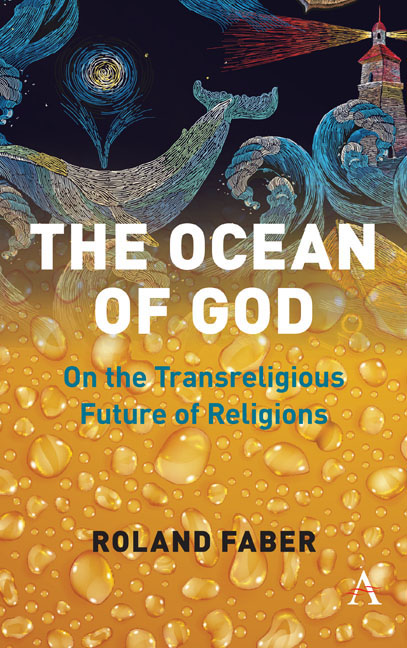Book contents
- Frontmatter
- Dedication
- Contents
- Introduction
- Part I Paradigms of Unity and Plurality
- Part II Negotiations of Multiplicity
- Chapter Six Convergences and Divergences: Juncture or Bifurcation?
- Chapter Seven Pluralism of Pluralisms?
- Chapter Eight Horizontal and Vertical Pluralism
- Chapter Nine An Experiment in Incompatibilities: Green Acre
- Chapter Ten The Mystery of Distinction and Unity
- Part III Transreligious Horizons
- Glossary
- References
- Index
Chapter Seven - Pluralism of Pluralisms?
from Part II - Negotiations of Multiplicity
Published online by Cambridge University Press: 09 July 2019
- Frontmatter
- Dedication
- Contents
- Introduction
- Part I Paradigms of Unity and Plurality
- Part II Negotiations of Multiplicity
- Chapter Six Convergences and Divergences: Juncture or Bifurcation?
- Chapter Seven Pluralism of Pluralisms?
- Chapter Eight Horizontal and Vertical Pluralism
- Chapter Nine An Experiment in Incompatibilities: Green Acre
- Chapter Ten The Mystery of Distinction and Unity
- Part III Transreligious Horizons
- Glossary
- References
- Index
Summary
The drop must not estimate its own limited capacity; it must realize the volume and sufficiency of the ocean, which ever glorifieth the drop.
— ‘Abdu'l-BaháAs with the viewpoint rising from the supposition of the unity of religions, so also has the concept of religious pluralism received mixed reviews not only from proponents of a more reiterated understanding of this unity, but even more so from worldviews and philosophical advocates of pluralism for whom even the differentiation between monocentric and polycentric pluralism does not go far enough. The main reason for the disappointment of those pluralists, based in methodologies inspired by postcolonialism, poststructuralism and feminist/ womanist perspectives, among others, is that all of the above mentioned varieties of “monism” and pluralism presuppose a fundamental agreement on the “unity of reality” that is suspicious to them. For a more perennialist monocentric understanding of unity, “monism” of reality seems to imply that this unity of reality is one that, in the end, will finally overcome, or has already always underpinned, the differences between different culturally, socially and psychologically embedded mindsets; while these differences remain operative on an epistemological level, they do not reach the ontological embeddedness in one Reality. The polycentric approaches, again, invariably seem, in the end, not “deep” enough either, because they will have to admit some kind of communication between their supposed ultimates, which lets them appear as another variant of an assumed metaphysical “monism” of Reality.
Instead, postcolonialist and feminist/ womanist approaches make the point that all of these “monistic” pluralisms are still “Eurocentric” variations on the theme of power, of staying in control of the discourses and dialogues. As they are presumed to be conducted on the basis of Euro-American thought patterns, not in themselves minority-oriented or -admitting, and, hence, limited by patriarchal, paternalistic and racial/ ethnic conundrums, they cannot be truly pluralistic, multicultural or transcending gender and race restrictions. The whole discussion on postcolonial “hybridity” targets precisely such limitations, namely, the failure of the idea that anyone could think freely beyond such limitations if we just would allow for colonially suppressed indigenes’ cultural and religious experiences to surface and become part of the ongoing multicultural and multireligious discourses.
- Type
- Chapter
- Information
- The Ocean of GodOn the Transreligious Future of Religions, pp. 81 - 92Publisher: Anthem PressPrint publication year: 2019



